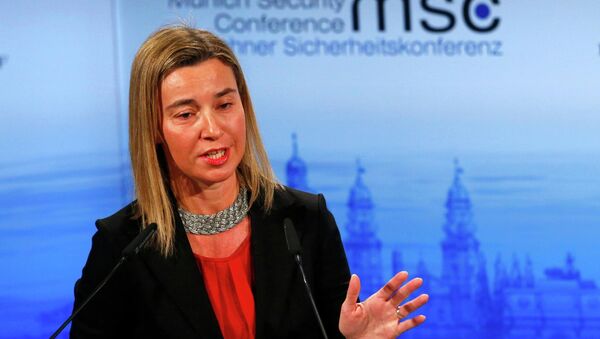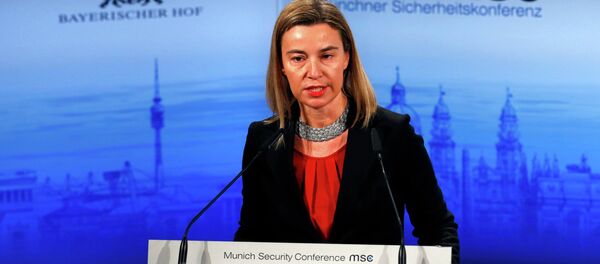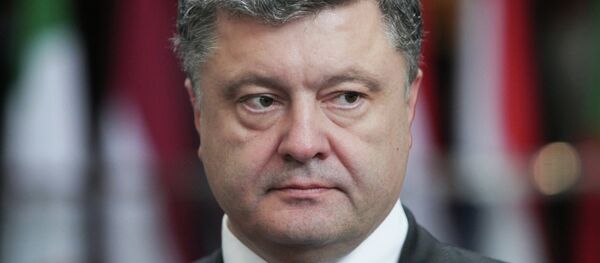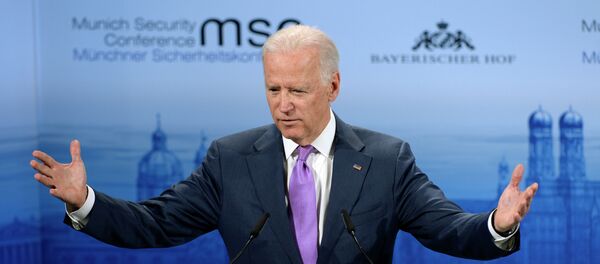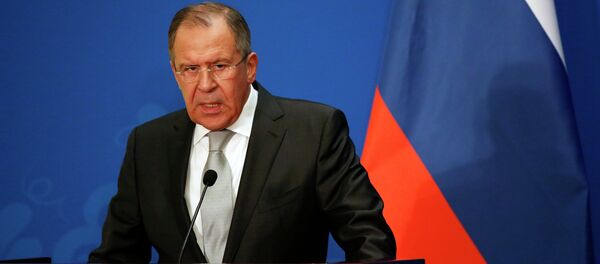"That is why we just added 1.8 billion euros in macro-financial assistance, but let me say that much more, much more is needed from the international assistance," Mogherini said.
Ukraine’s authorities are trying to rescue the country’s war-hit, deteriorating economy with international loans.
In spring, the International Monetary Fund (IMF) promised Ukraine a total of $17 billion in bailout loans, to be provided over the course of two years. In addition, several western countries have allocated funds to Ukraine. To receive the IMF funds in full, Ukraine agreed to a severe austerity program.
The European Union relies on exhaustive diplomacy as a key instrument in putting an end to the conflict in Ukraine, EU foreign policy chief Federica Mogherini said Sunday opening the third day of the Munich Security Conference.
"What is our action to stop the conflict and restore the respect of international law? First is exhaustive diplomacy, including economic pressure that we impose with our sanctions. We work on all channels, all forms and formats of dialogue that can lead to a solution, be it a trilateral contact group, [or] the efforts of mediation led by the OSCE [Organization for Security and Co-operation in Europe]," Mogherini said.
She stressed that the conflict in Ukraine is an extremely dangerous precedent not only for Europe, but also for the rest of the world.
Mogherini stressed that EU is unsure whether the initiative of German Chancellor Angela Merkel and French President Francois Hollande on Ukrainian reconciliation will be effective.
On Thursday, Merkel and Hollande held talks on the Ukrainian conflict with Ukrainian President Petro Poroshenko in Kiev, and the next day discussed a new plan for settling the crisis in Donbas with Russian President Vladimir Putin in Moscow.
The ongoing conflict between Ukrainian forces and independence supporters in the southeast Ukraine erupted in April 2014, after the latter refused to recognize the legitimacy of the coup-installed Kiev authorities.
In September 2014, the warring sides sat at the negotiation table in Minsk, the capital of Belarus, which resulted in a breakthrough ceasefire agreement. In the beginning of 2015, however, the violent clashes between Kiev-led forces and independence supporters resumed.
The follow-up Minsk talks on Ukrainian reconciliation in late January failed to bring results.
